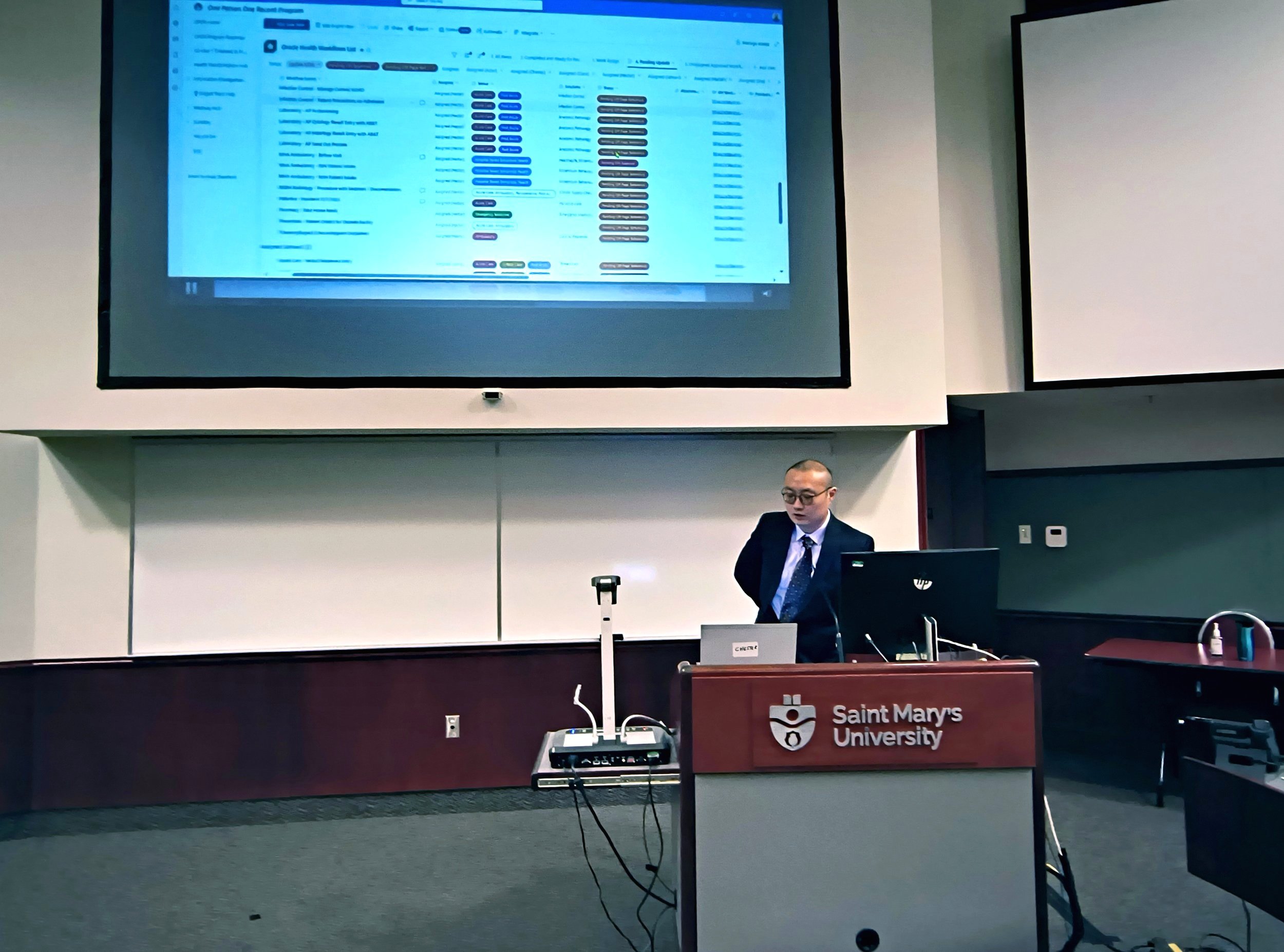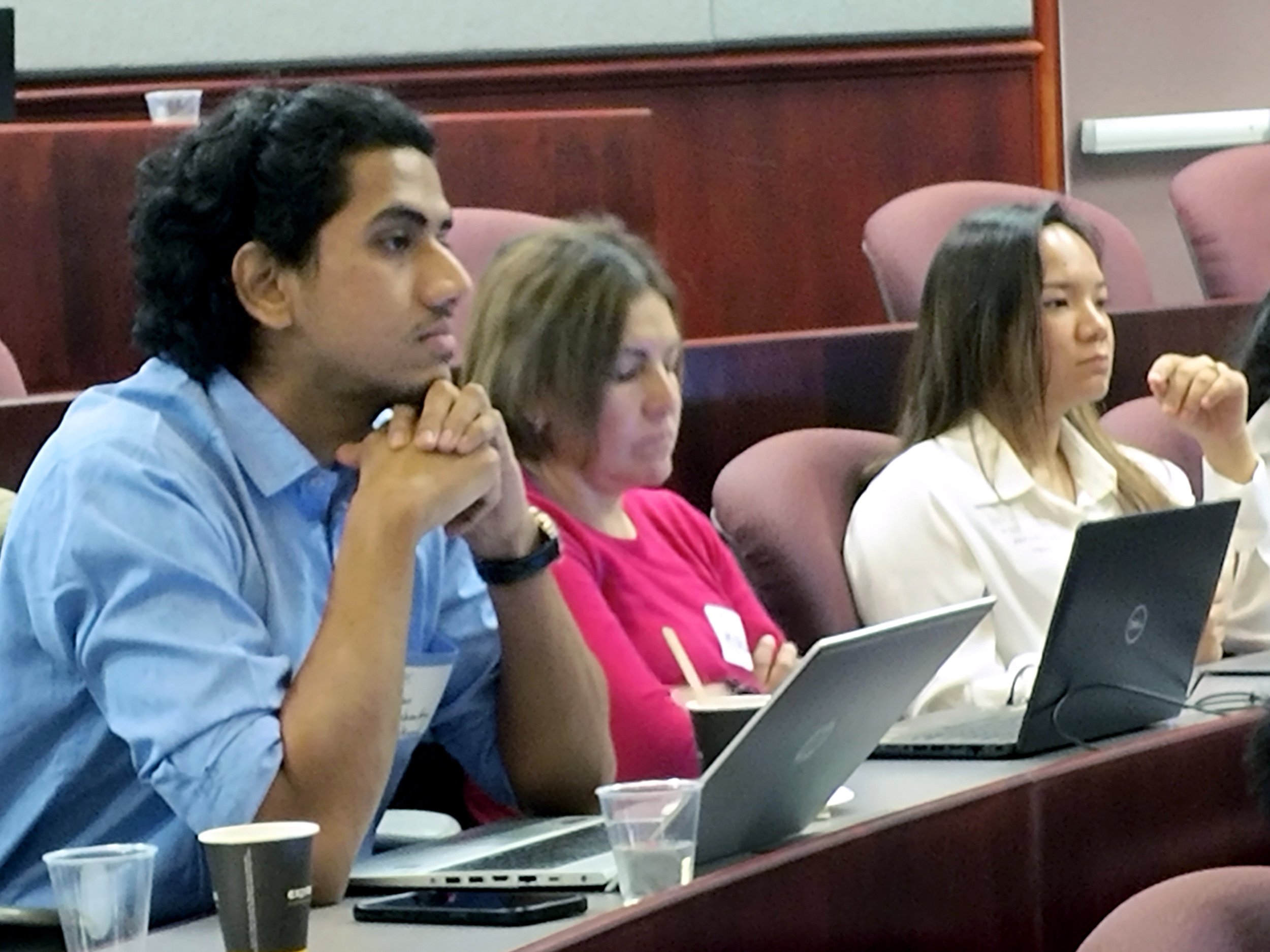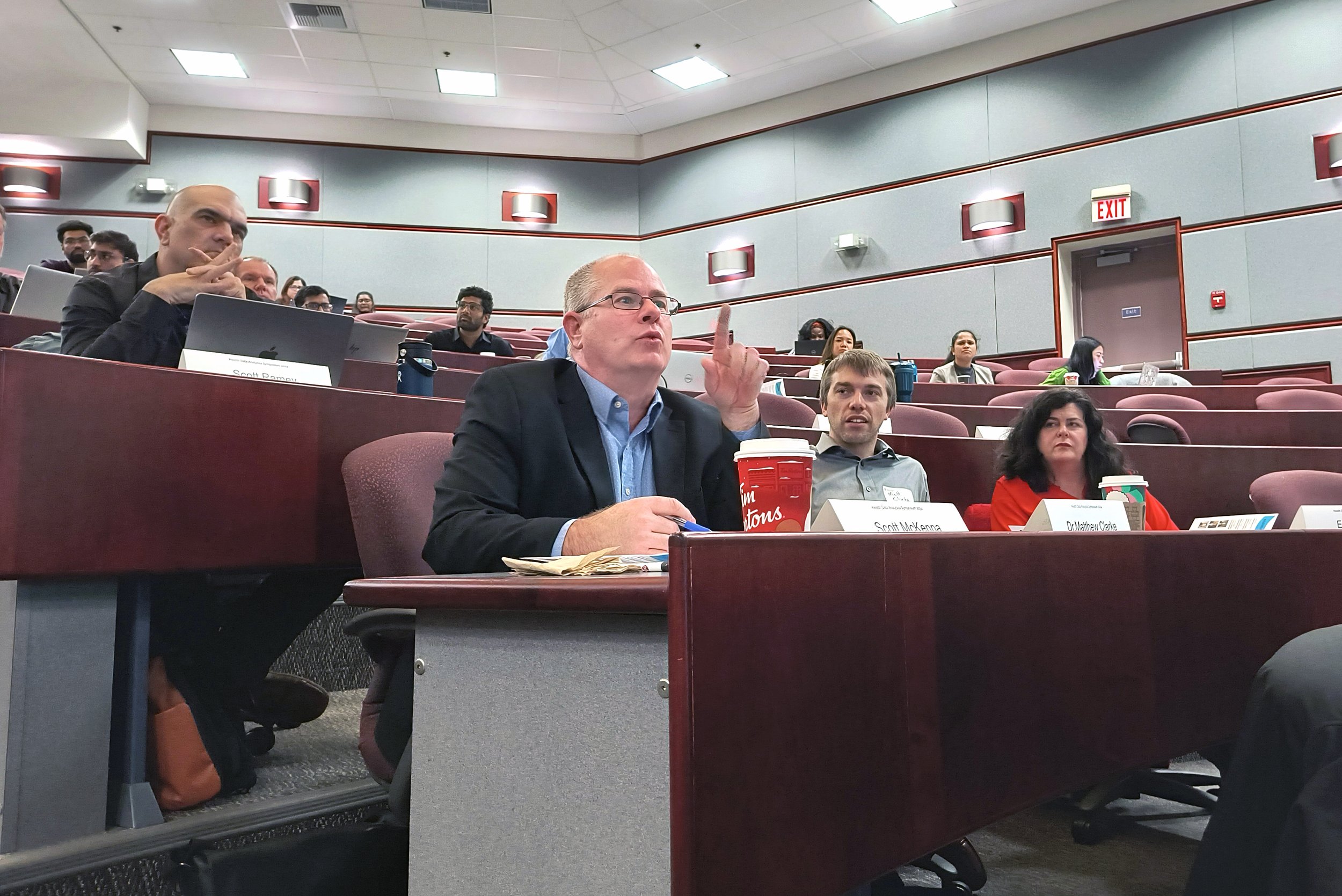






How can data transform healthcare? Can data help us make better decisions around patient care and even help manage the overall healthcare system in Nova Scotia?
Those were the central questions at the Health Data Analytics Symposium, which was recently held at Saint Mary’s University. The symposium brought together a diverse group of experts from government, healthcare, and business.
This annual event provides a platform for SMU graduate students in the Master in Business Analytics (MBAN) program to present their groundbreaking research. It is a place for them to share the results of their internships and co-ops with some of Nova Scotia’s largest healthcare providers, including Nova Scotia Health, the IWK and the Nova Scotia Department of Health and Wellness. This symposium is aimed at fostering partnerships between academia and healthcare, driving innovations that directly benefit Nova Scotians.
MBAN student Farhat Roopkatha
“My work with the IM/IT Business Intelligence Team at Nova Scotia Health […] has been a transformative experience, setting new standards for capacity planning and organizational transparency in healthcare,” says MBAN student Farhat Roopkotha.
“From customizing workflows to fostering collaboration across diverse teams, this project has demonstrated how tailored tools can drive impactful change. By integrating Agile methodologies, we’ve empowered teams to optimize resources and align goals for better outcomes across Nova Scotia Health.”
Healthcare experts questioned the students about the practical applications of data insights into various aspects of healthcare, from daily medical routines to long-term planning. These discussions highlighted examples of how data is being used to enhance patient care and streamline healthcare operations in local emergency rooms, long-term care facilities, and prescription management.
“The feedback from the Nova Scotia Health community was truly inspiring, reaffirming the importance of this project in improving data collection and patient outcomes,” says MBAN student Fana Abaynew Mandefro, who presented her work with the Wound Care Registry Project with the Nova Scotia Health Innovation Hub.
A notable session delved into the role of data in understanding the social determinants of health. Scott McKenna, Chief Information Officer, Nova Scotia Health and IWK, stressed the importance of analyzing social factors such as income and education. “Data and analytics have the power to bring tremendous insight to the health system. Layering in important socio-economic information can give us a whole different perspective and influence how we design solutions for citizens and tailor them to respond to unique needs.”
Jordan Warford, Executive Director of Planning and Performance, Department of Health and Wellness
Jordan Warford, Executive Director of Planning and Performance, Department of Health and Wellness, posed the question, “How can we harness the power of data to plan for the longer term?”
Warford emphasized the importance of data analytics in uncovering hidden patterns and trends, which can lead to more informed decisions. “Data is the compass guiding us through healthcare’s complexities, revealing insights that turn information into better care and healthier communities. These students are proving that the smart decisions we make today can shape a stronger, more sustainable system for tomorrow.”
As the symposium progressed, attendees gained valuable insights into the critical role of data in shaping the future of healthcare. The event underscored SMU’s commitment to fostering innovation and preparing the next generation of healthcare leaders.
Matthew Murphy, Chief Data Officer, Nova Scotia Health Authority, expressed his deep appreciation for the partnership and commitment to further advancing internship programs with SMU. Saint Mary’s University continues to lead the way in equipping students with the tools to revolutionize healthcare through data. "Partnerships like the one between Nova Scotia Health and Saint Mary’s University are pivotal in shaping the future of healthcare. By leveraging the power of data, we are not only equipping students with practical skills but also creating real-world solutions that enhance care and improve outcomes for Nova Scotians.”
The work underway in SMU's health analytics space reflects the ecosystem's commitment to building a healthcare system that meets today’s demands and is prepared to adapt to future challenges with data at its core.


